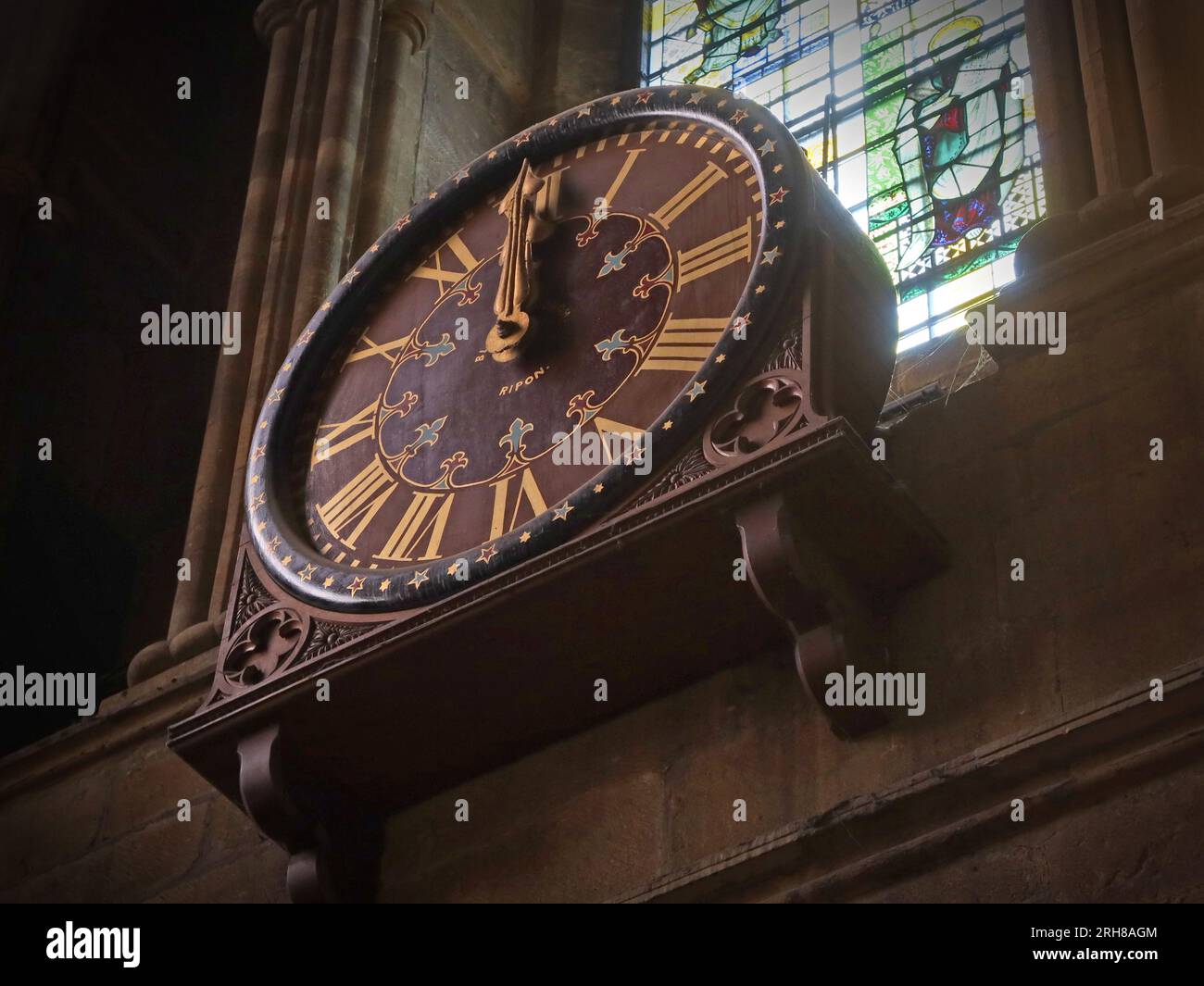Clock in Church of St Peter and St Wilfrid, Cathedral, Liberty Court House, Minster Rd, Ripon, North Yorkshire, England, UK, HG4 1QT

Image details
Contributor:
Tony Smith / Alamy Stock PhotoImage ID:
2RH8AGMFile size:
40.3 MB (1.1 MB Compressed download)Releases:
Model - no | Property - noDo I need a release?Dimensions:
4332 x 3252 px | 36.7 x 27.5 cm | 14.4 x 10.8 inches | 300dpiDate taken:
13 August 2023Location:
Liberty Court House, Minster Rd, Ripon, North Yorkshire, England, UK, HG4 1QTMore information:
The Cathedral Church of St Peter and St Wilfrid, commonly known as Ripon Cathedral, and until 1836 known as Ripon Minster, is a cathedral in Ripon, North Yorkshire, England. Founded as a monastery by monks of the Irish tradition in the 660s, it was refounded as a Benedictine monastery by St Wilfrid in 672. The church became collegiate in the tenth century, and acted as a mother church within the large Diocese of York for the remainder of the Middle Ages. The present church is the fourth, and was built between the 13th and 16th centuries. In 1836 the church became the cathedral for the Diocese of Ripon. In 2014 the Diocese was incorporated into the new Diocese of Leeds, and the church became one of three co-equal cathedrals of the Bishop of Leeds. The cathedral is notable architecturally for its gothic west front in the Early English style, considered one of the best of its type, as well as the Geometric east window. The seventh-century crypt of Wilfrid's church is a significant example of early Christian architecture in England. The cathedral has Grade I listed building status. Saint Wilfrid was buried in this church near the high altar. Devastated by the English king Eadred in AD 948 as a warning to the Archbishop of York, only the crypt of Wilfrid's church survived but today this tiny 7th-century chapel rests complete beneath the later grandeur of Archbishop Roger de Pont l’Evêque's 12th century minster. A second minster soon arose at Ripon, but it too perished – this time in 1069 at the hands of William the Conqueror. Thomas of Bayeux, first Norman Archbishop of York, then instigated the construction of a third church, traces of which were incorporated into the later chapter house of Roger's minster The minster finally became a cathedral (the church where the Bishop has his cathedra or throne) in 1836, the focal point of the newly created Anglican Diocese of Ripon – the first to be established since the Reformation